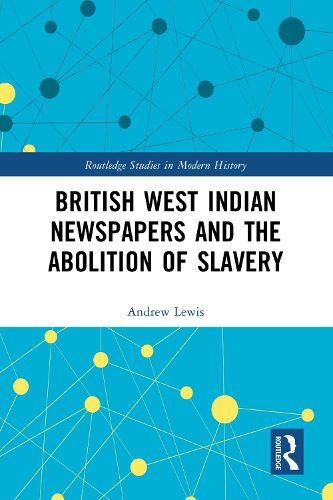Readings Newsletter
Become a Readings Member to make your shopping experience even easier.
Sign in or sign up for free!
You’re not far away from qualifying for FREE standard shipping within Australia
You’ve qualified for FREE standard shipping within Australia
The cart is loading…






This book is the first overall survey of the British West Indian press in the early nineteenth century-a critical period in the history of the region.
Based on extensive and ground-breaking archival research, this volume provides an in-depth history of early nineteenth-century British West Indian newspapers and potted biographies of the journalists who produced them. The author examines the economics underpinning newspapers, and a political spectrum, unique to the West Indian press, is also posited. Towards one end sat a small group of 'liberal' newspapers that outraged white colonists by arguing for civil and political rights to be extended to so-called free coloureds and for the abolition of slavery; scattered at various points towards the other end of the spectrum were newspapers still best collectively described as the 'planter press'-the traditional term used in the literature. Starting from this basic conceptual framework, the volume shows how the press landscape in the British Caribbean at this time was more volatile and complex than has been previously thought.
This volume will be of value to academics, undergraduates and postgraduates studying Caribbean and media history and those interested in modern history.
$9.00 standard shipping within Australia
FREE standard shipping within Australia for orders over $100.00
Express & International shipping calculated at checkout
This book is the first overall survey of the British West Indian press in the early nineteenth century-a critical period in the history of the region.
Based on extensive and ground-breaking archival research, this volume provides an in-depth history of early nineteenth-century British West Indian newspapers and potted biographies of the journalists who produced them. The author examines the economics underpinning newspapers, and a political spectrum, unique to the West Indian press, is also posited. Towards one end sat a small group of 'liberal' newspapers that outraged white colonists by arguing for civil and political rights to be extended to so-called free coloureds and for the abolition of slavery; scattered at various points towards the other end of the spectrum were newspapers still best collectively described as the 'planter press'-the traditional term used in the literature. Starting from this basic conceptual framework, the volume shows how the press landscape in the British Caribbean at this time was more volatile and complex than has been previously thought.
This volume will be of value to academics, undergraduates and postgraduates studying Caribbean and media history and those interested in modern history.